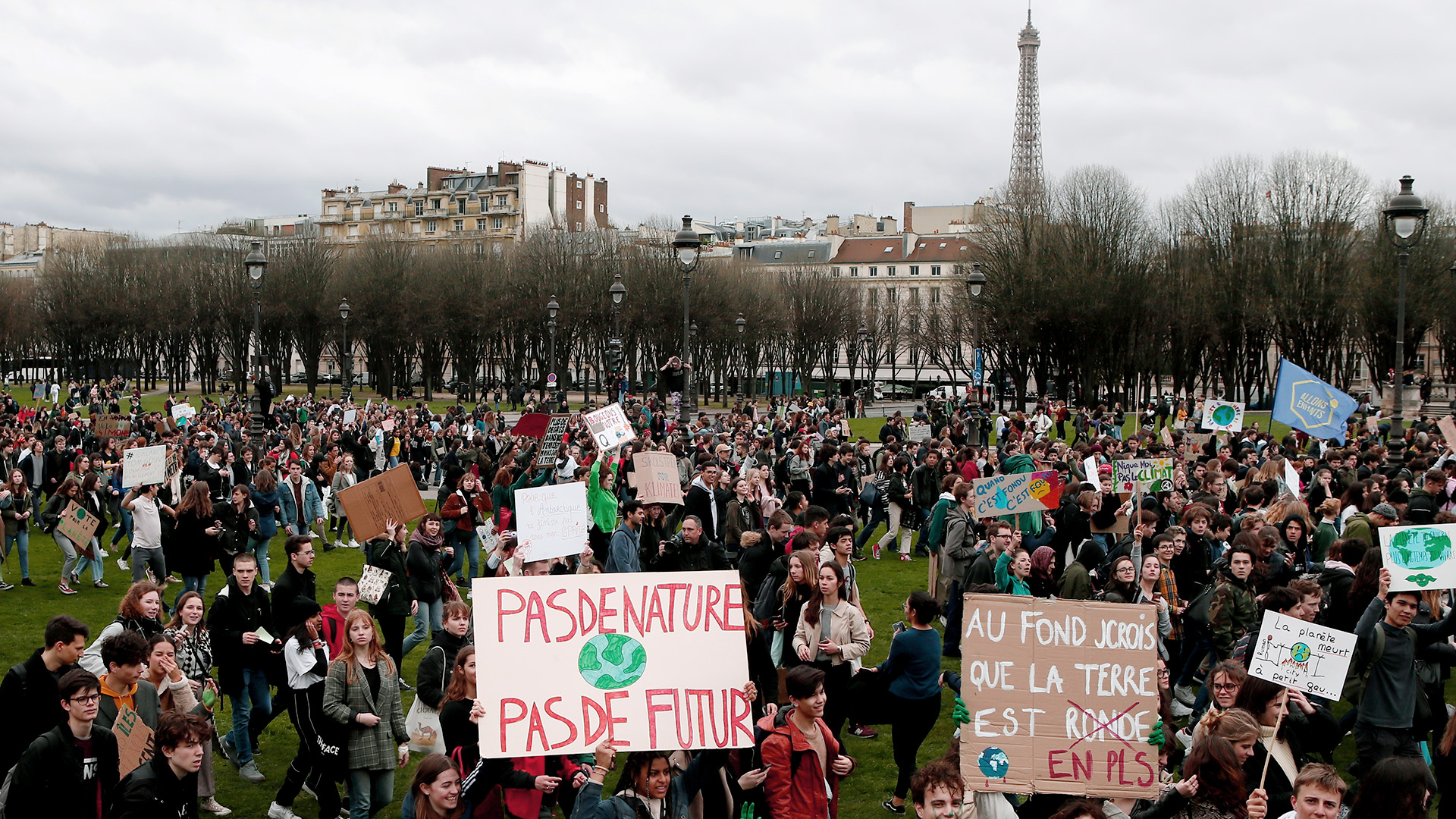Most French Christians—92% of Catholics and 87% of Protestants—think the environment and climate change should be more present in the life of their local parish or church community. Half of them—52% of Catholics and 58% of Protestants—believe the church should speak out on environmental issues and climate change.
That’s according to a new survey from the Institut Français de L’Opinion Publique (French Institute of Public Opinion or IFOP), the nonprofit Parlons Climat (Let’s Talk Climate), and the Christian environmental organization A Rocha France, which revealed for the first time how French believers view the current climate crisis.
The survey explored the relationship between religious practice and ecological attitudes among the French population, offering insight into personal environmental commitment, the expected role of the church, and the connection between the intensity of religious practice and the willingness to take environmental action.
While the study does not fully represent French Christian attitudes toward environmental concerns, it sheds light into how Catholics and Protestants view climate change and the church’s role in this issue, researchers said.
The results suggest that the French Protestant community is growing more and more concerned about climate change, with 80 percent of Protestant respondents agreeing that we need to “radically change our lifestyles now to combat environmental degradation and climate change.”
However, practicing Christians were divided on the role of the church in the face of climate crisis, with 42 percent of both Catholic and Protestant respondents agreeing that it would be a good idea to invite “associations or experts to discuss the subject” and only one-third (30% of Catholics, 33% of Protestants) saying climate change should be addressed “through the pastor’s sermon.”
“This type of survey, which is quite common in certain countries such as the United States, is a first in France,” said Jean-François Mouhot, director of A Rocha France. “The results … will enable us to identify the points of resistance and to better communicate the importance of ecological and climate issues amongst A Rocha France's main target audience: the Christian public.”
An overwhelming number of Christian respondents (92% of Catholics, 90% of Protestants) agreed with the statement that “caring for the earth is caring for your neighbor.” And a majority of Christian respondents (71% of Catholics, 76% of Protestants) said they had participated in climate marches and local efforts to protect the environment (73% of Catholics, 77% of Protestants).
Close to two-thirds of both Catholics and Protestants (65% and 62% respectively) believe that climate change is mainly due to human activity. And 85 percent of Catholics and 80 percent of Protestants also agree that radical change needs to occur to combat environmental degradation.
Yet the survey showed that around half of Catholics and Protestants (53% and 49% respectively) claimed that they didn’t know what to do about environmental degradation and climate change. A minority of both Catholics and Protestants (20% and 27%, respectively) also expressed that “my ecological and spiritual thoughts nourish each other.”
While the majority of participants expressed a concrete desire for environmental engagement, even within their church life, the role of humans and religious institutions on these issues seems more debated.
“What is interesting in France is that the more practicing a Christian is, the more they are susceptible to be sensitive to environmental issues,” said Mouhot. “For [practicing] Protestants, there is a demand for a clear statement from Protestant institutions, and I think that the consensus [amongst them] will be all the clearer once an official statement has been made.”
The results are “nuanced by the presence of an environmental counter-discourse among some participants, influenced mainly by a negative perspective on the relationship between ecology and religion,” A Rocha France stated. “This seems to be the major obstacle for those who resist integrating environmental concerns into their religious framework.”
Political parties and various nonprofit associations in France are often vocal on environmental issues, but this is the first quantitative study on French Christians and how they view environmental action in the context of their church life. (Catholics make up 29 percent of the French population while Protestants are only 3 percent, according to France’s National Institute of Statistics and Economic Studies and the French Protestant Federation.)
The report was carried out with three samples of respondents comprising almost 2,000 people, including a non-representative sample of Christians, which included 484 Catholics and 379 Protestants. The Christian sample comprised both non-practicing believers as well as practicing believers, which the survey defined as regular church attendance and “practicing your religion personally [through] prayer, Bible reading, worship, etc.”
IFOP noted that “the Protestant and Catholic samples cannot be considered representative in the statistical sense of the term; they are samples of convenience.” A Rocha France and Parlons Climat also admitted this, saying that the study cannot wholly describe what the general French Christian population thinks about the environment and is not necessarily a representative sample. But the study does provide a better understanding of how practicing Catholics and Protestants view these issues, said A Rocha.
The work, initiated by Parlons Climat and A Rocha France, was carried out following preparatory research involving numerous Christian organizations in France as well as previous academic studies.
“[Parlons Climat and A Rocha] are very pleased to publish this study … which has been supplemented by numerous preliminary interviews with Christian actors and academics,” said Lucas Francou Damesin, co-founder of Parlons Climat. “We feel it is essential to understand the specific ways in which Catholics and Protestants view the ecological transition.”
“We want to better communicate [on these issues] and mobilize [Christians] to take action against climate change,” said Mouhot.












